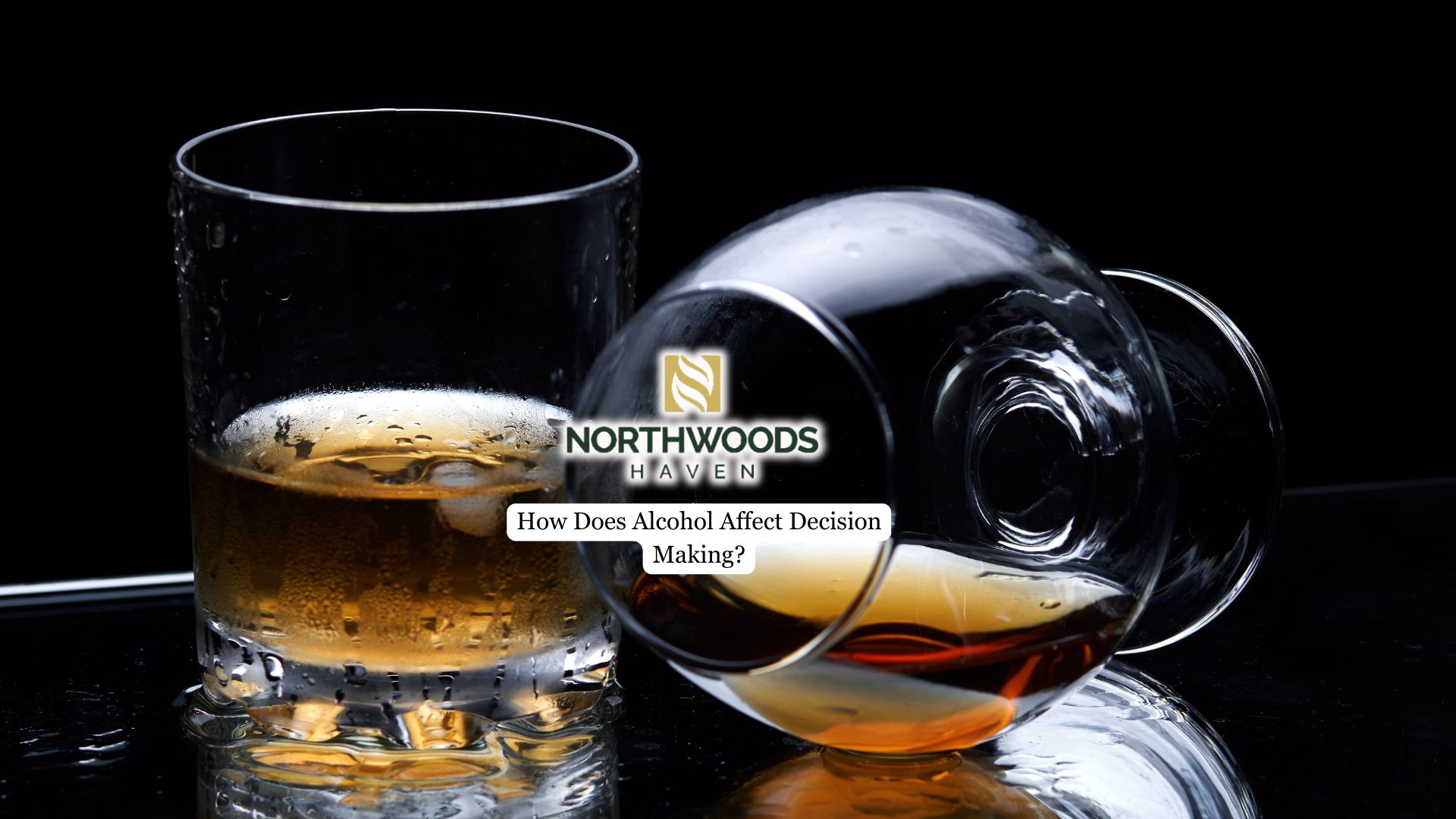Alcohol impairs decision-making by disrupting brain function – particularly in areas responsible for judgment, impulse control, and risk assessment. Even moderate drinking can cloud your thinking and lead to choices you wouldn’t normally make when sober. Over time, chronic alcohol use can cause lasting changes in brain structure, making poor decision-making a recurring pattern.
This article explains how alcohol alters your brain’s ability to think clearly, the consequences of impaired judgment, and practical strategies to protect this vital function – especially if you’re working toward sobriety or managing alcohol use.
Alcohol’s Impact on Judgment
Alcohol rapidly crosses the blood-brain barrier and alters neurotransmitter systems that regulate mood, cognition, and decision making. One of the primary effects is the increased release of dopamine, which creates feelings of reward and pleasure but also impairs judgment and impulse control. Even low doses can shift your focus to the present moment, making it harder to consider the long-term consequences of your actions.
These neurochemical changes have a direct impact on the prefrontal cortex – the part of the brain responsible for rational thinking, self-regulation, and risk evaluation. As this area becomes less active under the influence of alcohol, you may experience brain fog and a noticeable decline in your ability to make thoughtful, informed decisions. Over time, repeated exposure can further weaken this executive control, making it harder to break unhealthy patterns or avoid high-risk behaviors.
Recognizing these brain-based effects is the first step in reversing them. Our alcohol treatment program in Minnesota offers personalized care that addresses these neurological impacts head-on. Using evidence-based therapies and cognitive strategies, we help clients rebuild executive functioning, restore mental clarity, and regain confidence in their decision-making abilities.
Short-Term Effects on Risk Assessment and Impulse Control
Alcohol impairs your ability to assess risks and control impulses almost immediately after consumption. It disrupts the brain’s impulse control mechanisms, leading to more impulsive actions and poorer judgment. At a blood alcohol concentration (BAC) of 0.08% – the legal driving limit – concentration and reaction times are significantly reduced, and risk-taking behavior increases.
This impairment makes you more likely to engage in risky behaviors, such as aggressive actions or unsafe sexual encounters, because alcohol lowers inhibitions and shifts your decision-making toward immediate gratification.
How Alcohol Alters Brain Function and Decision Making
Alcohol significantly affects your brain’s ability to make sound decisions, primarily by disrupting the function of the prefrontal cortex (PFC) – the region responsible for impulse control, moral reasoning, and evaluating long-term consequences. When the PFC is impaired, individuals are more likely to act on impulse, prioritize immediate rewards, and engage in behaviors they might normally avoid, such as aggression, risky sexual activity, or poor financial choices.
Even moderate alcohol consumption can reduce PFC effectiveness, altering moral judgment and increasing susceptibility to risky behavior. Research also shows a direct correlation between blood alcohol concentration (BAC) and cognitive impairment. As early as 0.02% BAC, decision-making and visual processing begin to decline. At 0.08% – the legal driving limit in many places – concentration, judgment, and reaction time are notably impaired. At higher levels, alcohol can distort your ability to weigh ethical outcomes, often favoring utilitarian decisions without regard for long-term consequences or moral standards.

Social and Emotional Decision-Making Under the Influence
Intoxication impairs emotional regulation and lowers inhibitions, leading to more impulsive social decisions.
You may become more generous or helpful in some situations, but you’re also at higher risk for aggression and misreading social cues. Alcohol can increase prosocial tendencies but also create unpredictable outcomes in relationships and social encounters.
Memory Formation and Its Effect on Future Decision-Making
Alcohol impairs memory formation, making it difficult to learn from past experiences. Even low doses can disrupt memory recall, leading to blackouts or lapses that prevent you from remembering critical decisions and their outcomes.
Without these memories, you’re more likely to repeat risky behaviors. Chronic alcohol use can cause lasting changes to brain structures involved in memory, further undermining your ability to make informed decisions in the future.
Gender and Age Differences
Alcohol’s cognitive effects vary by gender and age. Men tend to exhibit more impulsivity and risk-taking when drinking, while women often experience greater emotional responses and reach higher BACs from the same amount of alcohol, leading to more pronounced impairment.
Younger individuals, especially those in their late teens and early twenties, are more susceptible to immediate decision-making impairments and risky behaviors due to ongoing brain development and peer influence. Older adults may experience slower recovery from alcohol’s effects and are at higher risk for cognitive decline with long-term use.
How to Minimize Cognitive Damage from Alcohol
While you can’t eliminate alcohol’s effects on decision-making, you can take steps to minimize impairment:
- Set a personal drink limit before going out to help maintain self-control.
- Bring a sober friend to monitor your behavior and provide an objective perspective.
- Plan alcohol-free activities to reduce reliance on drinking for entertainment.
- Arrange rideshare or public transit in advance to avoid impulsive decisions about driving.
- Stay aware of your surroundings and social dynamics to minimize vulnerability to peer pressure and risky situations.
Final Thoughts from Northwood Haven Recovery
Alcohol consumption dramatically alters brain chemistry, impairing judgment, increasing impulsivity, and skewing risk assessment – even at low BAC levels. Understanding these effects is essential for recognizing when your judgment is compromised and for implementing strategies to protect yourself and others when drinking.
At Northwoods Haven Recovery, we offer an individualized alcohol addiction treatment program in Minneapolis that addresses the cognitive and behavioral impacts of alcohol use. Through evidence-based therapies, life skills training, and supportive care, we help individuals rebuild mental clarity, strengthen decision-making abilities, and develop healthier coping strategies – laying the foundation for long-term recovery and a more empowered, mindful life.



